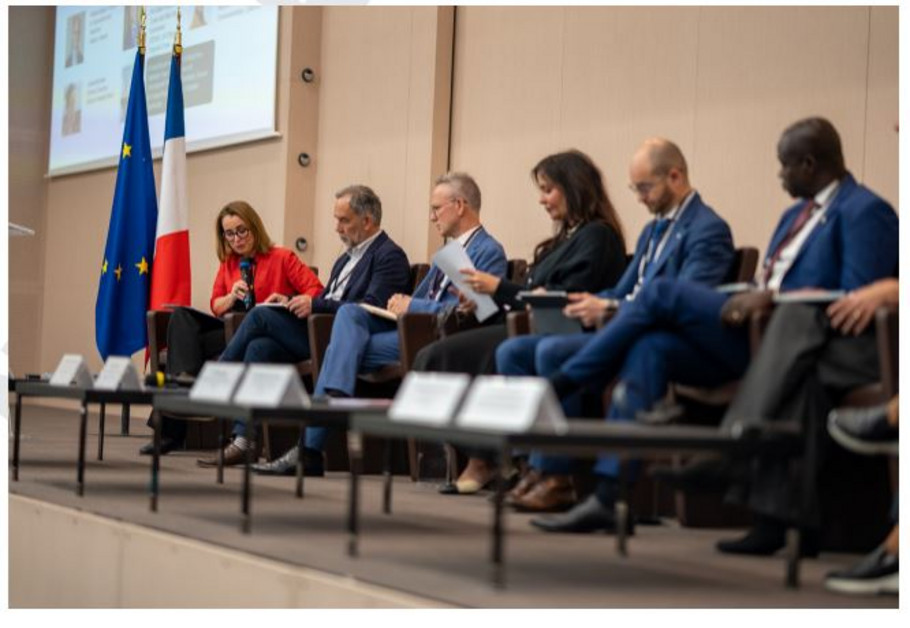
Paris, April 2025 – On the occasion of the Third Security and Development Dialogue on Environmental Crime, the international community reaffirmed the urgent need for coordinated responses to the growing threats facing the planet’s ecosystems. Among the most affected and strategically significant regions is the Congo Basin a true biodiversity sanctuary, but also an increasingly targeted zone for illicit trafficking, corruption, and illegal deforestation.
A Vital but Vulnerable Region
As the world’s second-largest tropical forest, the Congo Basin plays a crucial role in regulating the global climate and is home to millions of people, including numerous Indigenous communities. However, it is on the frontlines of environmental crime: illegal mining, unregulated logging, and wildlife trafficking are rampant, fueled by well-organized transnational criminal networks.
Despite increasing engagement, the countries of the region often face a lack of resources, harmonized legal frameworks, and effective international cooperation. The Paris conference highlighted the need to strengthen support for these nations in order to combine the fight against environmental crime with sustainable development.
The Need for a Stronger Multilateral Response
The dialogue highlighted the limitations of the current approach. Given the scale of the damage irreversible harm to ecosystems, worsening social inequalities, and institutional destabilization current responses are seen as fragmented and inadequate. In this context, the Congo Basin stands out as a key region, underscoring the need for a more structured, inclusive, and equitable multilateral approach.
Several solutions were discussed, including the creation of a new international protocol on environmental crime under the United Nations Convention against Transnational Organized Crime (UNTOC). Such a protocol would help harmonize laws, facilitate cross-border investigations, and build the capacity of Congo Basin countries to respond more effectively.
A Pivotal Regional Conference in Libreville – July 2025
In this spirit, a major regional conference on environmental crime and human-wildlife conflict will be held in Libreville, Gabon, from July 10 to 11, 2025. Co-organized by the Republics of France and Gabon co-facilitators of the Congo Basin Forest Partnership (CBFP) with support from COMIFAC, ECCAS, the French Development Agency (AFD), and Expertise France, the event aims to bring together around 350 key stakeholders from Central Africa and beyond to develop lasting solutions to the threats facing the Congo Basin’s forests.
Several related events will take place on July 9, including the 17th CBFP Governing Council Meeting, a meeting on the successor to the Congo Basin Pledge, a Science-Policy Dialogue Day, and a Civil Society Day.
Centering Local Voices and Combating Corruption
Participants also emphasized the importance of incorporating local knowledge, environmental defenders, and Indigenous peoples into the design and implementation of environmental policies. In the Congo Basin, these actors are often the first to raise the alarm about abuses sometimes at great personal risk and they possess invaluable knowledge of local dynamics.
Furthermore, corruption was identified as a major obstacle to progress. In many cases, it allows criminal networks to operate with impunity, infiltrating public institutions and obstructing justice mechanisms.
A Global Imperative
The Congo Basin represents both an irreplaceable natural treasure and a region acutely vulnerable to the rapid evolution of environmental crime. It must be placed at the center of global priorities. The Paris conference made it clear: protecting the Congo Basin is not just a regional necessity it is a global imperative.
The Libreville conference in July 2025 will be a crucial moment to turn commitments into concrete actions and to strengthen both regional and international cooperation in the fight against environmental crime.
Download the full report of the Third Security and Development Dialogue… (PDF – 2.71 MiB) (pdf - 2.71 Mi)
Share: